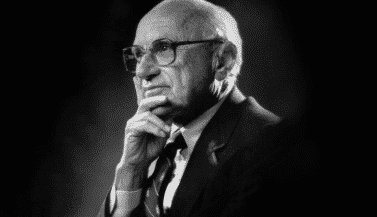The Problem with Milton Friedman

Milton Friedman is very popular with libertarian types who place him right next to Ayn Rand in their mythology. And we’re likely to hear a lot more about his views if Bernie Sanders continues his momentum.
I want to address Friedman’s basic concept that there are no perfect people, and therefore we can only trust markets.
This is a major false dichotomy. The tell is in statements like:
Where are these angels that are going to run everything for us?
The implication is that since there are no perfect people, we should let the market handle everything, i.e. that government is always flawed because people are always flawed, and markets are the only perfect beings.
The problemi is simple: markets (like technology) don’t do anything but magnify nature, and nature is largely unfair. Markets don’t have any goals to improve the world, or to increase happiness for people, or reduce suffering. Markets don’t care. They’re levers.
And even though nobody is an angel, there are plenty of people, and plenty of frameworks, that are more moral than "markets".
Examples
Let me show you how the goals of human improvement and markets can be strongly in conflict:
The 1% having more than the 99% is consistent with free markets. It’s not consistent with humanism.
Education being too expensive for 90% of people is consistent with the market. It’s not consistent with humanism.
Healthcare being too expensive for billions of people is consistent with the market. It’s not consistent with humanism.
Friedman is hawking an apathy and cynicism that is not just bad, but that is anti-American. A strong middle class is humanist, but it isn’t a goal of any market. Markets don’t have goals.
And we shouldn’t be embracing ideologies that don’t have clear goals we can agree with.
Markets are not a savior. Markets are not an ideology. Markets are not solutions.
They are tools to use to accomplish goals, and those goals must be stated outright and pursued by the people.